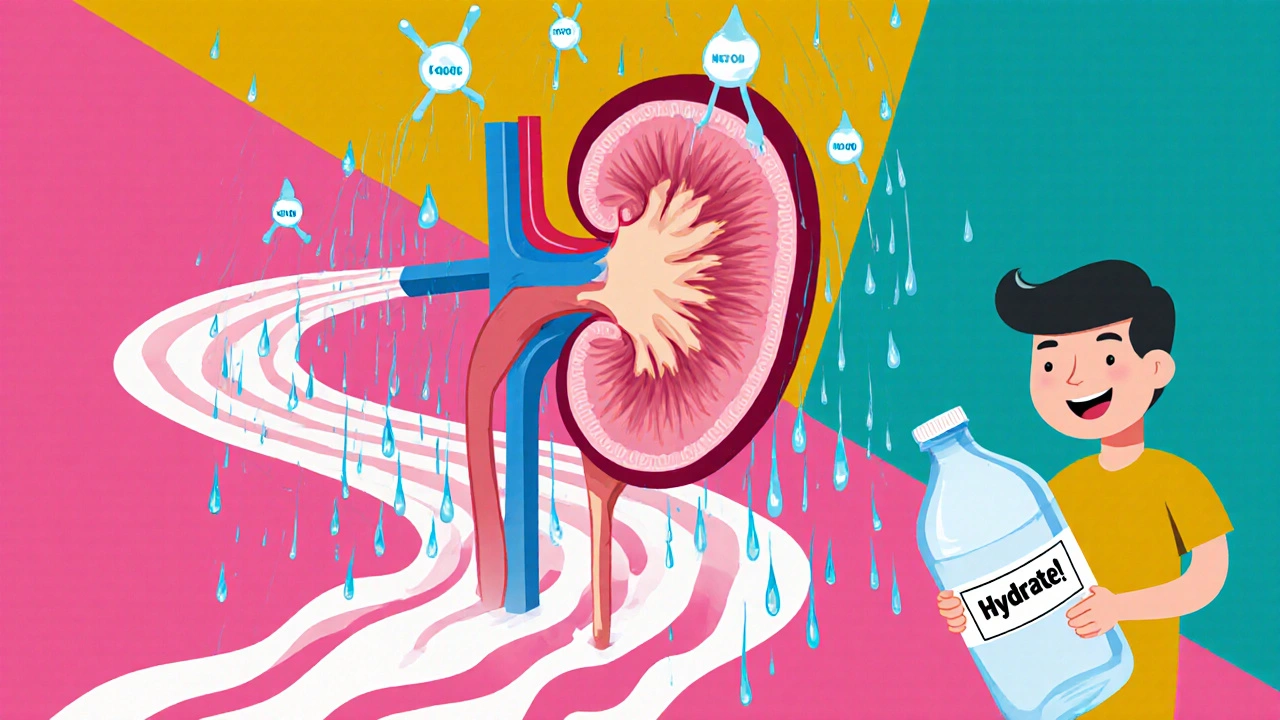SGLT2 Inhibitors: What They Are, How They Work, and What You Need to Know
When you hear SGLT2 inhibitors, a class of oral diabetes medications that reduce blood sugar by making the kidneys remove excess glucose through urine. Also known as gliflozins, these drugs don’t just lower blood sugar—they’ve been shown in clinical trials to cut heart failure risk and slow kidney damage in people with type 2 diabetes. Unlike older diabetes pills that force your body to make more insulin, SGLT2 inhibitors work differently: they block a protein in your kidneys called SGLT2, which normally reabsorbs sugar back into your bloodstream. When that block happens, sugar flows out with your urine instead. Simple. Direct. Effective.
That’s why doctors are prescribing them more often—not just for blood sugar control, but because they’ve proven to protect your heart and kidneys. Drugs like empagliflozin, a leading SGLT2 inhibitor shown in the EMPA-REG OUTCOME trial to reduce cardiovascular death by 38% in high-risk patients, and dapagliflozin, which lowered hospitalizations for heart failure by 27% in the DAPA-HF study, even in patients without diabetes, have changed the game. And canagliflozin, another major player, demonstrated significant kidney protection in the CREDENCE trial, reducing the risk of kidney failure by 30%. These aren’t just glucose-lowering pills—they’re disease-modifying treatments.
But they’re not magic. You might notice more trips to the bathroom at first—because your body is flushing out sugar. Some people get yeast infections, especially women, because sugar in urine creates a cozy environment for yeast. Dehydration can happen if you’re not drinking enough water, especially in hot weather or if you’re active. And while they’re generally safe, they’re not for everyone. People with severe kidney disease, those prone to low blood pressure, or with a history of diabetic ketoacidosis need to be careful.
The posts below cover real-world questions you might not find in a drug leaflet: how SGLT2 inhibitors interact with other meds, what to do if you miss a dose, how they compare to GLP-1 agonists like Ozempic, and why some patients feel better on them than others. You’ll also find insights on side effects, cost, and what to watch for when your doctor suggests switching. This isn’t theory—it’s what patients and providers are actually dealing with every day.
SGLT2 Inhibitor Side Effects: Dehydration, Dizziness, and Blood Pressure Changes Explained
SGLT2 inhibitors help lower blood sugar and protect the heart, but they can cause dehydration, dizziness, and low blood pressure. Learn how these side effects happen-and how to manage them safely.
© 2026. All rights reserved.

